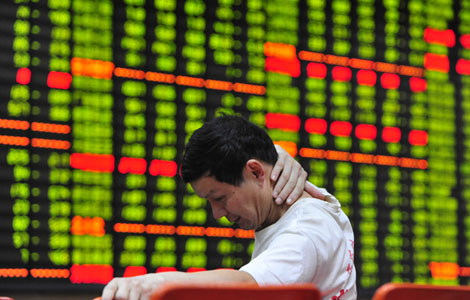
"Investing in women is one of the most effective ways to reduce inequality and facilitate inclusive economic growth," said Dina Habib Powell, president of the Goldman Sachs Foundation and global head of corporate engagement.
"Business education can lead to more productive workers, healthier and better educated families and ultimately to more prosperous communities," she said.
According to data from the All-China Women's Federation, China now has more than 30 million female entrepreneurs. They make up 25 percent of all Chinese business leaders.
Among the female entrepreneurs, 60 percent have successfully launched their own businesses in recent 10 years. About 6 million of them are self-employed, the federation said.
Song Xiuyan, vice-chairman of the federation, said more women are starting businesses and thereby improving the development of small and medium-sized enterprises and promoting Chinese economic growth.
"Female entrepreneurs are playing more important roles in eliminating social poverty and driving technology innovation," Song said.
"However, they usually lack information about good business opportunities and are short of funds, something society needs to pay close attention to," she added.
Data from the World Trade Organization showed that women face more difficulties and challenges when starting a business compared with men. In developing countries, the number of women workers is 40 percent of the total labor force but their income is 20 to 30 percent lower than male workers on average.
Stronger potential economic growth momentum can be realized if more women can get work opportunities, the report said.
In order to support the female entrepreneurs, the federation, the Ministry of Finance and the People's Bank of China jointly released policies on lending small sums to support companies run by women. Since 2009, a total of 129 billion yuan in loans were issued, helping 2.7 million women launch their own businesses.
"The Asia-Pacific region will remain the fastest growing area globally and an anchor of stability in the world economy," said Noeleen Heyzer, United Nations' under-secretary-general and executive secretary of the United Nations Economic and Social Commission for Asia and the Pacific.
"Women in Asia-Pacific often bear the brunt of lingering poverty and yet possess largely untapped potential as drivers of equitable and sustainable growth," Heyzer added.
"Entrepreneurship provides a uniquely powerful means to harness that potential and advance gender equality through women's economic empowerment."
A report from the commission indicated that output per worker could be 7 to 18 percent higher across a range of countries if female entrepreneurs and workers were to work in the same sectors as men and have the same access to productive resources.
"Restricting job opportunities for women in Asia and Pacific countries is costing the region an estimated $89 billion every year," the report said.
 HK's new cruise terminal receives luxury liner
HK's new cruise terminal receives luxury liner
 Future points to carbon trading
Future points to carbon trading
 Seafood businesses flounder amid spending cut
Seafood businesses flounder amid spending cut
 Equities slump amid slow-growth estimates
Equities slump amid slow-growth estimates
 Auto show opens with much fanfare in Xi'an
Auto show opens with much fanfare in Xi'an
 Sunnylands summit fuels Chinese tourism interest
Sunnylands summit fuels Chinese tourism interest
 'Palace on wheels' on sale for $3.13m in Dubai
'Palace on wheels' on sale for $3.13m in Dubai
 Fortune smiles on Chengdu as forum concludes
Fortune smiles on Chengdu as forum concludes